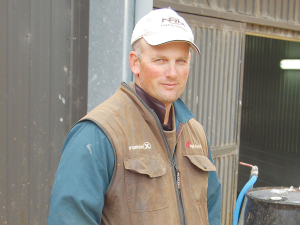Dairy farmers say they urgently need 1,500 overseas workers within the next six months.
While farmers are happy with changes announced last month to the existing class border exception for 200 dairy workers, they desperately need more skilled workers from overseas.
Federated Farmers immigration spokesperson Chris Lewis says the dairy sector cannot afford another calving season without skilled staff.
"We urgently need reinforcements," he told Rural News. "We have managed two calving seadons by cutting corners. Staff are burnt out, stress levels are very high and another calving season like the past two years will result in some sad statistics."
Securing MIQ spots remains the biggest hurdle to get workers into the country. Of the 200 border exceptions for dairy workers issued last year, only a handful arrived in the country.
Lewis suggested that the Government attach MIQ spots to everyborder exception granted to the agriculture sector.
Last month the Government approved border class exceptions for 200 mobile plant machinery operators, 40 shearers and 50 wool handlers.
The Government has also altered the existing class border exception for 200 dairy workers to remove the previous split of 150 assistant dairy farm managers and 50 dairy farm assistants.
Lewis thanked Agriculture Minister Damien O'Connor and the Government for listening to farmers.
"Thank you for listening to us, we did a lot of hard lobbying behind the scenes and we are very happy with the outcome," he told Rural News.
However, Lewis says border exceptions are useless unless the overseas workers can secure MIQ spots.
"I suspect the electric driverless tractor would make a appearance quicker than a MIQ outcome. Border exception is just the first part of the process of getting the overseas workers in," says Lewis.
Employers and their workers are still faced with a complex and lengthy process to get employees into New Zealand and working on farms.
"Employers and their workers will need to work closely with their respective industry groups to sort MIQ, flights and all the associated paperwork.
"This is not an easy or cheap task for either party, but with unemployment at such low levels this is really the only option for much of the primary industries at the moment."
DairyNZ strategy and investment leader farm performance Nick Robinson says there has been much stronger demand from dairy farmers for farm assistant positions, and all of these applicatins were filled quickly.
"We know there are more farmers who have vacant farm assistant positions that they can't find Kiwis to fill."
Robinson says while the decision is good news, it's critical that the Government support the dairy sector's request to allow a further 1,500 international dairy workers into New Zealand in 2022, and DairyNZ pressed this point home to the Government at this meeting.
"We currently have the lowest unemployment rate we have seen since 2007 at 3.4% and we know the rate is even lower in many dairying regions. With our borders closed, many of New Zealand's core sectors are facing staff shortages, and we are seeing a significant labour shortage on farms too."



















